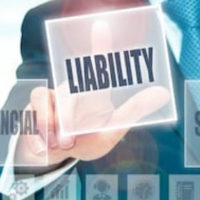4 Types of Visitors in Maryland Premises Liability Claims

Under the doctrine of premises liability, Maryland property owners have a duty to maintain a safe and orderly premises. If a dangerous condition exists on their property, then the owner generally must correct the problem or at least post a warning. When a property owner fails to honor their legal duties, visitors who sustain harm may be able to file a personal injury lawsuit for premises liability.
That being said, property owners do not owe every visitor the same duty of care. Maryland state law dictates that certain types of visitors must receive a higher duty of care than others. From invitees to licensees, bare licensees, and trespassers, property owners must adhere to their legal duty of care for each type of visitor.
What is an Invitee?
An invitee is a person who visits a property for commercial reasons. Express invitees usually receive a direct invitation from the owner to visit the property. On the other hand, implied invitees are generally customers or vendors who visit a business location that is open to the public.
When an invitee enters their property, the owner must use reasonable and ordinary care. If the property owner acts unreasonably or abnormally in the face of dangerous conditions — by failing to correct the issue or issue an appropriate warning, for example — it could lead to liability under the doctrine of premises liability.
What is a Licensee?
A licensee is a person who visits a property for personal, family, or other non-commercial reasons. Licensees include social guests and other people who have permission from the owner to visit the property.
When a licensee enters their property, the owner must use reasonable care. Stated otherwise, the property owner must respond to any dangerous conditions in a reasonable fashion. If the property owner fails to do so, and a licensee sustains harm or injury as a result, then a premises liability lawsuit could be possible.
What is a Bare Licensee?
A bare licensee is a person who visits a property for their own personal reasons. Bare licensees must have permission from the property owner to enter the property. But otherwise, it is not necessary for a bare licensee to have contact with the property owner.
When a bare licensee enters their property, the owner cannot do anything in a wanton manner that could injure the visitor. To satisfy this standard, the property owner must knowingly and intentionally attempt to injure a bare licensee.
What is a Trespasser?
A trespasser is a person who visits a property without permission from the owner. Trespassers are unlawful visitors on the property. Depending on the circumstances, trespassers may even be guilty of a crime.
When a trespasser enters their property, cannot do anything in a willful and wanton manner that could injure the visitor. As with bare licensees, the property owner must refrain from knowingly or intentionally attempting to injure a trespasser.
Do You Need Legal Help?
If you have legal questions about premises liability claims in Maryland, it can be extremely valuable to reach out to an esteemed personal injury attorney. The Baltimore premises liability attorneys at Iamele & Iamele, LLP know how to hold property owners accountable for their actions through premises liability claims and secure financial compensation for your injuries. If you need legal help, contact us today for a free initial consultation.

